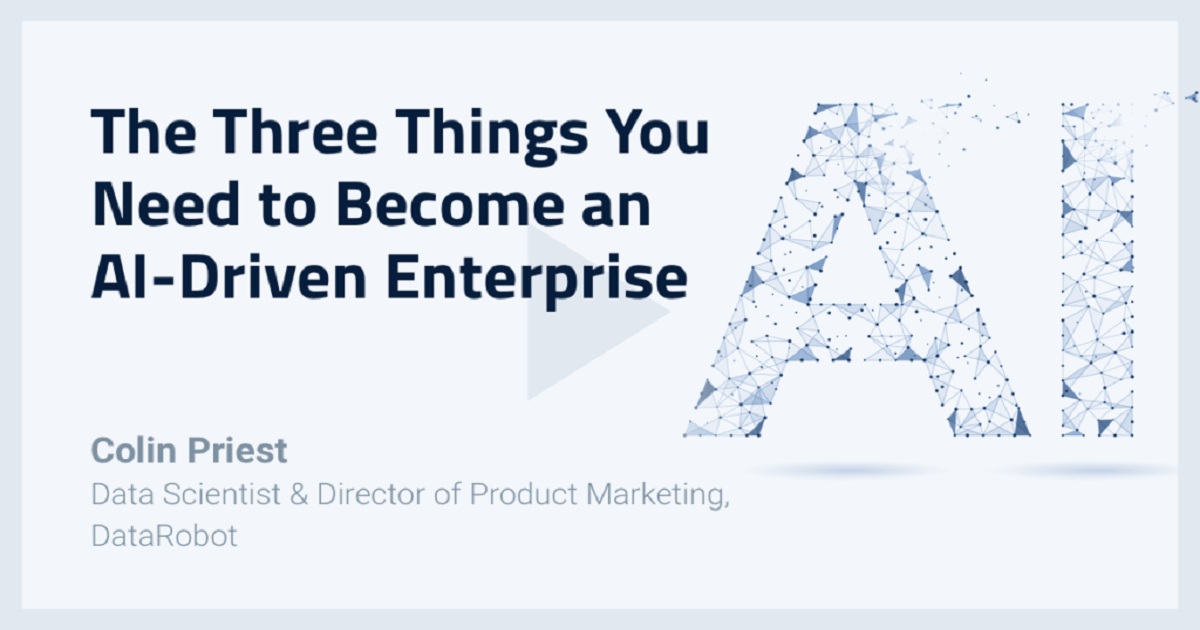
In contrast to humans, all decisions made by algorithms are systematic and based on user data, sensors, and algorithms. The question is, who is responsible for errors: the provider, the integrator, or the end-user? In most scenarios, responsibility is distributed amongst all stakeholders. Full autonomic systems (including self-driving technology) are not accepted by lawmakers, and a human supervisor is demanded as a backup. Thanks to behavioral science, research knows that humans can be influenced and manipulated by Artificial Intelligence. This is comparable to the animal kingdom in which an alpha rules the pack, but the beta is able to manipulate the alpha.
Watch Now

Data Robot
As machine learning and artificial intelligence (AI) become must-have capabilities in every industry, organizations are realizing they need to become AI-driven enterprises in order to remain competitive. However, many companies hesitate to implement AI solutions because of three major concerns: finding the expertise required to build high-quality AIs from machine learning models, a lack of trust in “black box” decision-making, and prohibitively long machine learning project timelines that affect time to market.
Watch Now

Empiric Health’s mission is to reduce unwarranted clinical variation, thereby improving healthcare outcomes and affordability. Primarily focused on surgical services, Empiric Health integrates Electronic Medical Records (EMR) and supply utilization data, which is then processed by a proprietary AI engine that sorts surgical encounters into clinical cohorts, or groups of comparable surgeries. This engine was created hand-in-hand with clinicians in order to facilitate direct clinician engagement. While AI engines provide traceability and clear explanations, they struggle to scale and expand quickly when exposed to novel data or changing practices.
Watch Now

APIs have become a strategic necessity for your business because they facilitate agility and innovation. However, the financial incentive associated with this agility is often tempered with the fear of undue exposure of the valuable information that these APIs expose. We will explore in depth the main security concerns API providers and consumers need to consider and how to mitigate them.
Watch Now